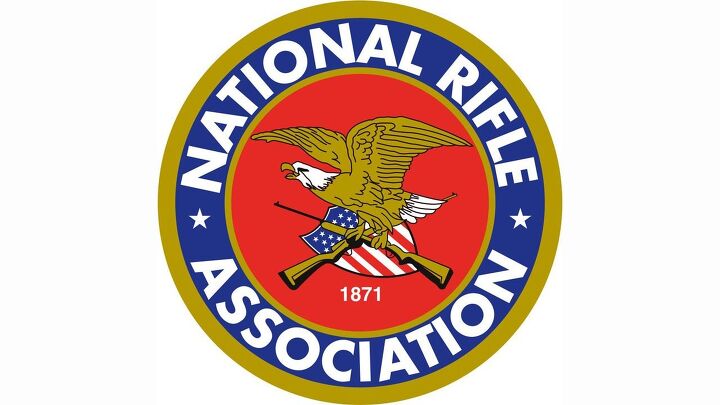At the risk at alienating our staunchly apolitical readers, I am going to invoke my editorial privilege to briefly talk about the National Rifle Association and it’s relevancy to modern firearm ownership. Absent, as always here at TFB, will be partisan labeling of liberals, conservatives, democrats or republicans – if you are looking for those types of circular debates, there are plenty of places on the internet to warm your hearts and fan your flames. If you feel that TFB has forsaken you, here’s a list of product releases from the 2019 NRAAM instead.
But as the 2019 NRA Annual Meeting draws to a close, and because TFB and TFBTV were on hand to report on industry announcements, I feel that the NRA leadership shakeups like Oliver North being ousted as NRA president and NRA CEO Wayne LaPierre’s accusations of extortion are objectively newsworthy for the firearms industry as a whole. However, the bigger question remains: does the NRA still have the American shooter’s best interest at heart?
The NRA: A Brief History
The NRA was founded in 1871 to promote marksmanship, training and provide range access for military and civilian shooters alike. And for 65 years the organization’s focus was all practical and not legislative. But in 1934 (yes, that 1934), the NRA began informing members of pending bills, beginning with the National Firearms Act (NFA) and later the Gun Control Act (GCA) of 1968. In case you were wondering, the NRA supported both the NFA of 1934 and the GCA of 1968.
It wasn’t until the late 1970’s, however, that the NRA formed a political action committee as well as their Institute for Legislative Action and turned its focus on firearms legislation in the United States, starting with the Firearm Owners Protection Act (FOPA) of 1986 that attempted to undo some of the GCA restrictions. FOPA basically ended the production and transfer of fully automatic firearms by unlicensed individual owners, ending the ownership of new machine guns by civilians. The NRA opposed the 1994 assault weapons ban and successfully lobbied for the sunset clause that ended it in 2004.
Side Note: The expiration of the AWB was a defining period for the modern American gun owner – for a decade, shooters interested in owning AR15s and similar rifles were forced to shoehorn neutered models into their safes, all the while yearning for small, seemingly insignificant features and standard capacity magazines. After the sunset, the firearms industry exploded with new owners and refreshed innovation.
And from there we work are way up to modern times where you likely know the rest of the NRA’s story.
Individual Liberties
For the most part, firearms ownership can lead to the formation of arbitrary teams that lead to an us-versus-them (D vs R) confrontational relationship, so remaining dedicated to TFB’s masthead, I prefer to instead focus on the preservation of individual liberties. It’s a basic premise sometimes lost in our modern world, where people are judged by their character rather than by their race, religion, political affiliation, sexual orientation, economic status, geographical region or their ownership of firearms. By applying the individual liberty standard to firearms ownership, we remove the majority of the partisan arguments. I realize that real-world complications prevent common sense approaches that allow individual liberties to prosper, but again, partisan debates can occur elsewhere.
If we can agree that firearms ownership is an individual liberty and we can also agree that the NRA is an organization that should be devoted to the preservation of those individual liberties, we can begin to analyze the relevance of the organization for American gun owners without the use of partisan politics. And from an outsider’s perspective, it feels like the organization as a whole is more concerned with financial and organizational gains than it is supporting their membership.
For example, supporting a ban on Bump Stocks goes against individual liberties of hundreds of thousands of Americans who own plastic pieces and coiled metal who never had any intent on using them to commit crimes. Maybe bump stocks were a battle that couldn’t be won. Maybe they were a sacrificial lamb. Maybe NRA leadership truly believed that bump stocks were machine guns that should fall within the restrictions of the NFA and the GCA. Whatever the reason, it should have been communicated to the members at large for discussion. And as far as I know, no explanation was given to NRA membership to why they supported banning bump stocks.
NRA Membership – Today
It’s my personal feeling that many members belong to the NRA today because they feel like it’s the right thing to do, are required to have a membership to join a range or because they believe that the NRA has their best interests at heart. And since everyone has their own interests, we can only assume that statement is both true and untrue at the same time.
No matter what the reason, I believe that NRA members should be given an exact breakdown of how their money is spent and what their membership means in terms of being a firearms owner in America. If we use the individual liberty standard, the mission statement of an organization like the NRA should be a few simple sentences.
The NRA today And American Firearm Ownership
In the end, it is obviously your choice to be an NRA member or not. I would encourage everyone to understand what membership means and demand that all their organizations be accountable for their actions and financial responsibilities. Based on these disclosures, a member may decide to donate additional funds or terminate their membership all together.
From my perspective, I want an organization that is willing to fight for a return to a belief in individual liberties.
I welcome your perspectives. Please keep your comments respectful. Thanks for reading TFB.
 Your Privacy Choices
Your Privacy Choices
